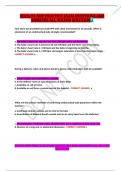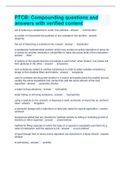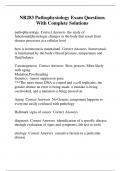P6+ P7
Explain why meeting the needs of the individuals requires the involvement of different
agencies.
Explain the roles and responsibilities of different members of the multidisciplinary team
in meeting the needs of specific individuals
Multidisciplinary treatment is necessary to address the needs of a client, and
commissioning should be used to prepare and assess areas of care for the person and
achieve a positive result in their care. This is because multidisciplinary treatment
necessitates various members of the health and social care departments partnering to
provide the service user with their own specific service where they require it in order to
produce a beneficial result in the service user's health. A treatment strategy is typically
developed by a group of experts and teams. The service customer must be interested
with the plan and ready to follow it. The treatment package promotes service delivery
and assures that the individual's needs are addressed. In Nusrat's case, her primary
care doctor, a specialty nurse practitioner, her mother, the centre manager, and other
members of a multidisciplinary team, such as the designated individual who is
specialised in counselling, will collaborate to address her needs. If Nusrat’s mother finds
something concerning with her daughter's condition, she can contact her doctor, who will
then collaborate with the expert nurse practitioner to monitor or manage Nusrat's
epilepsy. This ensures that Nusrat's primary care doctor and a consultant nurse
practitioner will collaborate with Nusrat and her mother to figure out why Nusrat's health
isn't changing and devise a solution to help her. The designated individual will
collaborate with the centre manager to ensure nusrat's safety. Because of the appointed
person's counselling experience, he or she may assist nusrat in navigating adjustments.
The designated individual can also possess counselling abilities in order to assist Nusrat
in coping with her seizure, which may exhaust her.
The G.P. will then consult with Nusrat, then if the G.P. determines that her epilepsy
requires the attention of an epilepsy specialist, she may be sent to one. When the nurse
practitioner examines nusrat's health, she will inform her mother if nustar's health
requires further treatment or whether she should be given medicine. Nusrat's mother will
also inform the centre manager of Nusrat's health, and the centre manager will ensure
that she is more closely monitored and cared for, so that they are mindful of any fits or
seizures she might have. They should even attempt to prevent any injuries by letting
someone accompany her to the toilet in case of an emergency. If the agencies and
professionals can not collaborate, she may have a seizure in the bathroom and no one
to support her, and avoiding cases like these is critical. Nusrat has a treatment package
in place that has a designated person. Owing to the versatility of the health and social
sectors, the treatment plan will be able to point her in the right direction which will
necessitate contact in order to provide appropriate care. Nusrat's appointed named
, person may assist her if she needs assistance and will advise her of any details she will
need to know or guidance her mother will need to properly care for her (Gov.scot, 2018).
Nusrat's appointed individual is also qualified in counselling, so she can go to her if she
has any concerns. This is because Nusrat may need assistance if she is distraught.
Brenda's G.P., asthma expert, healthcare visitor, and the named individual at the centre
are all included. The health visitor will collaborate with her doctor to determine her health
conditions, prevent her from becoming ill, and maintain her overall health by providing
her with knowledge and advice. The asthma expert and the health visitor should interact.
Brenda's asthma should be treated by an asthma expert, and the health visitor can
monitor her condition and provide her advice to ensure that her health does not
deteriorate. Brenda was given an inhaler by the asthma doctor, who administered a test
to assess the seriousness of Brenda's asthma and then provided Brenda with the
necessary tool to keep her asthma under control. Brenda's health will be improved with
the use of an inhaler and a healthy diet, as per the health visitor. Brenda will consult with
health visitors and dietitians to make sure she's consuming the right meals and avoiding
certain foods that could exacerbate her asthma.
Martin's primary care doctor, dermatologist, and centre manager also partnered to
support him. Martin is recommended to a dermatologist by the G.P. and dermatologists
specializes in treating severe skin disorders. Since a dermatologist specialises in
treating skin conditions, they will be able to discover solutions and treatments to cure his
skin disease, thus improving his health and well-being. His dermatologist will then
administer a drug to help him feel better. Martin may then inform the centre manager,
who can be certain that Martin has access to the treatment he needs. For eg, making
sure he doesn't go to carpentry so his skin condition doesn't escalate is an example of
this. However, if the centre manager worked closely with Martin's doctor and
dermatologist, the centre manager will already be aware of whether Martin's skin
condition had improved or deteriorated, as well as any improvement in his health.
Individuals' needs can also be met by organisations, and organisations can play a vital
part in caring for individuals by supplying them with the most appropriate care. Clinical
commissions investigate the aspects of treatment that a person requires and make
recommendations based on that detail, as well as commissioning G.P. facilities.
Individuals in the community may still choose how local services can be developed
whilst staying within the NHS budget. Adapting to local issues necessitates continuous
change. G.P.s and nurses are among the members of this association. They make
recommendations based on a region's health needs. They pay for NHS facilities
including hospitals, community services, rehabilitation, learning disabilities services, and
other health services (Nhscc, 2015). The England Clinical Commissioning Service will be
in charge of ensuring that local communities have access to emergency care and
commissioning services. A clinical commissioning committee will likely include other
practitioners, such as social workers, who evaluate the interests of service users.












